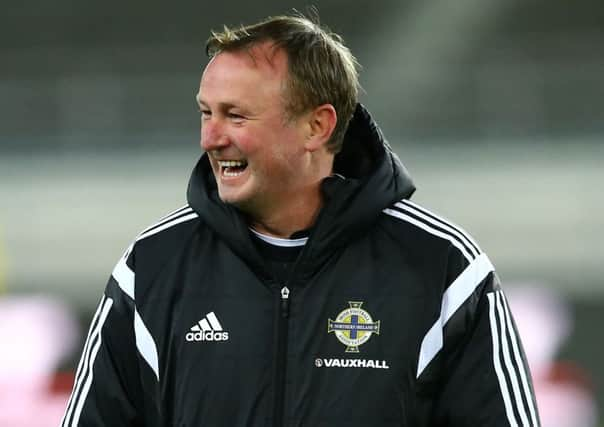EURO 2016 FOOTBALL: How things have changed for Northern Ireland


The defeat against the World Cup finalists from two years earlier in Michael O’Neill’s second game in charge was their sixth successive loss. There would be just one more victory in the 16 games that came before the Euro 2016 qualifying campaign.
An expanded 24-team finals gave the Northern Irish some hope of a first major international tournament appearance in 30 years, as did a favourable draw that saw them avoid the continent’s traditional heavyweights, yet the magnitude of their achievement in topping the group can only be appreciated by looking at what immediately preceded it.
Advertisement
Hide AdAdvertisement
Hide AdThere was an indication that something special was in store back in September 2014 when the Northern Irish, one down in Budapest with nine minutes to go, fought back against Hungary in their opening qualifier to claim their first away triumph in four years.
It was Kyle Lafferty that got the winner that night and O’Neill’s call for him to “step up” was certainly heard. Twelve months earlier, after a dismissal against Portugal 13 minutes after he came on, the manager hit Lafferty with some home truths - cut out the clown act and grow up; the penny dropped.
The refocused lynchpin would end qualifying with seven goals - only five players from all teams would score more - and the late equaliser against Hungary in Belfast last September, which came after Chris Baird had been dismissed, brought Northern Ireland to the brink of qualification.
Lafferty was suspended by the time it was sealed on a historic night at Windsor Park one month later as a double from captain Steven Davis and a further effort from Josh Magennis inside the opening hour banished any nerves in a 3-1 triumph over Greece.
Advertisement
Hide AdAdvertisement
Hide AdThat victory would come in the midst of a 10-match unbeaten run, with a home win over Slovenia in March setting a new national record that surpassed the streak of Billy Bingham’s side when they made the World Cup in 1986.
It may have been 30 years since that last finals appearance but O’Neill has helped foster belief inside his ranks. Their schedule in France is kind, even if the draw is not, with defining fixtures against Poland and Ukraine first up before a Paris date with world champions Germany.
Most of O’Neill’s squad and indeed starting XI for the Poland fixture on June 12 picks itself, though the team he selects against the Poles in Nice will alter depending on his formation.
The preferred 4-3-3 system used in qualifying has been tweaked to an experimental 5-3-2 in recent fixtures to allow Jonny Evans, Gareth McAuley and Craig Cathcart all to start in familiar centre-back berths in the team’s area of strength.
Advertisement
Hide AdAdvertisement
Hide AdThat trio, along with Davis, Roy Carroll and Aaron Hughes, have plenty of experience at international level, and the dark times they endured have made the past few years all the more sweeter.
This summer they will be in France and the Dutch, three-time World Cup finalists, will not.
It has been some turnaround under O’Neill.